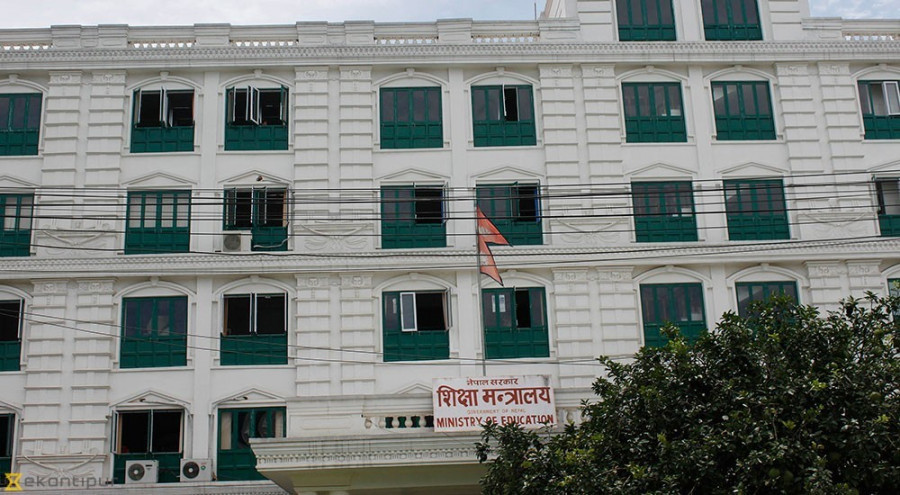National
Federal ministry calling shots in school projects irks local governments
The centre should allow local governments to manage all aspects of school-level education, they say.
Binod Ghimire
The Ministry of Education on Tuesday invited interested public schools to apply for a grant under the President School Education Improvement Programme, which can invest up to Rs2.5 million in one project.
But the programme hasn’t gone down well with representatives of local governments. The centralisation of the selection process under the programme shows that the federal government doesn’t respect the spirit of the constitution.
“What are the local governments for even if they don't get to select the schools for the project which carries a purse of just Rs 2.5 million in maximum,” Bhim Prasad Dhungana, general secretary at Municipal Association Nepal, told the Post. “This is a direct breach of the constitution.”
Schools selected under the programme get the grant to develop their physical infrastructure, enhance students’ learning achievements, and adopt technology and innovation to improve the quality of education quality, promote innovation, manage learning materials and increase access to technical and vocational education.
The government has allocated Rs5.10 billion for the programme, which aims to enhance the quality of education in schools, for the current fiscal year.
Even when the constitution authorises the local government to manage school-level education in areas under their jurisdiction, the federal government is controlling the distribution of budget worth a few million rupees, local government representatives argue.
Schedule 8 of the constitution gives local governments explicit authority to manage school education. It allows them to take any necessary measure to manage school-level education in their area. Officials at the Ministry of Education say as the programme was announced through the federal budget, it was only natural for the ministry to select schools for it.
Gopinath Mainali, secretary at the ministry, said the working procedure of the programme says the federal Ministry of Education, through the Centre for Education and Human Resource Development, shall select schools for the programme. “This doesn’t mean we have left out the local governments,” he told the Post. “They have a direct role in facilitating the implementation of the project.”
Local governments, however, say the federal government wants their involvement in the execution of the project just to point the finger at them if the programme doesn’t deliver expected results.“The local governments should be actively involved in the selection process if the federal government wants the programme to succeed,” said Dhungana, a mayor of Neelkantha Municipality, Dhading.
The Ministry of Education, after going through the applications, awards the schools that have designed effective projects. Mainali said the numbers of schools that would get a budget for the project depends on the estimated cost of each project.
Dhugana said the federal government should allocate the money to all 753 local governments and authorise them to select schools based on their project design. The President School Education Improvement Programme was designed with an objective of improving the quality of education in public schools as various government reports have shown that learning achievement of students has been degrading over the years.
The Education Review Office under the Ministry of Education, in 2019 reported that the performance level of eighth graders had dropped considerably since 2013. A study by the review office last year showed a similar trend for fifth graders.
The education improvement programme was designed with the hope that the schools come up with innovative ideas to make the teaching-learning process effective thereby, improving the quality of education in public schools.
Around 80 percent of the 7 million schoolgoers go to over 29,000 public schools in the country.




 14.12°C Kathmandu
14.12°C Kathmandu














